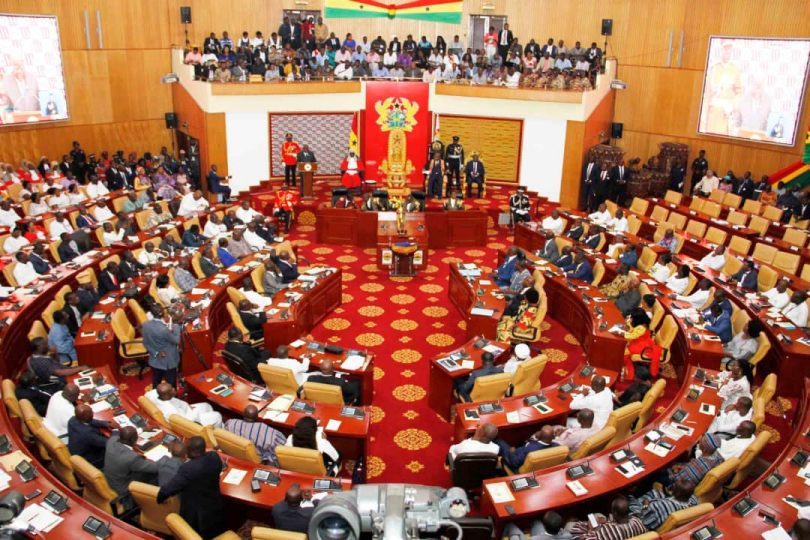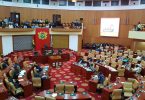The highly controversial Anti-LGBTQ+ bill has finally been enacted by Parliament after nearly three years of debate.
After the third reading of the bill, which was first filed in the House many years ago, was finished on Wednesday, February 28, it was unanimously passed.
During the meeting, Alban Bagbin, the speaker, rejected proposed changes to the law.
It is now planned to transmit the law to President Akufo-Addo for his approval.
On February 21, Alexander Afenyo-Markin, the majority leader, retracted a number of suggested changes to the measure. But Afenyo-Markin reaffirmed his position on the bill during Wednesday’s parliamentary session, objecting to a few of its features.
He opposed policies that would make it harder for people or organisations to help the weaker elements of society.
“You cannot—let’s not get too emotional about this; let’s be consistent,” Afenyo-Markin said, underscoring the significance of bringing the law into compliance with constitutional requirements. He went on to emphasise how important it is to protect human rights within the law.
The majority leader’s proposed revisions were met with opposition by Bernard Ahiafor, the National Democratic Congress MP for Akatsi South district.
He claims that the modifications put forth by Mr. Afenyo-Markin forbid supporting, encouraging, and aiding LGBTQ activities, which the measure aims to outlaw.
“Mr. Speaker, we’re not prejudiced; rather, we’re opposing the use of your funds to support and advocate for actions that will be rendered unlawful upon the enactment of this specific legislation. Therefore, I disagree with him when he subjects it to a constitutional provision.
On the other hand, Kobina Tahir (K.T.) Hammond, the MP for the New Patriotic Party representing Adansi-Asokwa, underlined that Parliament must use caution to avoid violating the constitution’s principles.
He emphasised that the Majority Leader has developed a proposed change to the bill and recognises the significance of the LGBTQ materials.
According to the majority leader, if it is agreed upon that the 10 and 11 should be read in accordance with the constitution, then what would be the obstacle to submitting the 12 to the same? I have a really hard time understanding what they are talking about.
The Speaker of Parliament presented a proposal to postpone further discussion of the measure in response to these arguments. The proposal cited Order 172(4) of Parliament, which specifies that a motion for the third reading cannot be made on the same day as the second reading.
The bill’s passage wasn’t without controversy. Unexpected drama occurred throughout the session, according to Kwaku Asante, Parliamentary Correspondent for Joy News. The House usually has to wait a day following the consideration stage before proceeding to the third reading. But after yet another round of changes put forth by Sam George and others, Asawase MP Muntaka Mubarak presented a resolution to revoke this rule.
The motion to suspend the rules was approved in spite of Majority Leader Afenyo-Markin’s opposition, enabling the House to move on to the Third Reading. Afenyo-Markin asked the Speaker to suggest more changes to the measure, but the Speaker turned her down.







